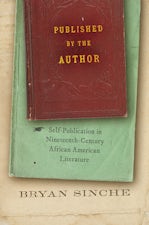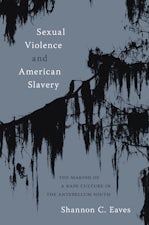Bittersweet Legacy
The Black and White 'Better Classes' in Charlotte, 1850-1910
By Janette Thomas Greenwood
334 pp., 6.125 x 9.25
-
Paperback ISBN: 978-0-8078-4956-9
Published: February 2001 -
E-book EPUB ISBN: 978-0-8078-6178-3
Published: November 2000 -
E-book PDF ISBN: 979-8-8908-6593-9
Published: November 2000
Buy this Book
- Paperback $55.00
- E-Book $29.99
Awards & distinctions
A 1995 Choice Outstanding Academic Title
1995 History Book Award, North Carolina Society of Historians
About the Author
Janette Thomas Greenwood is associate professor of history at Clark University.
For more information about Janette Thomas Greenwood, visit
the
Author
Page.
Reviews
"Greenwood tells Charlotte's complicated story well. Indeed, throughout her study she provides a wonderfully nuanced account of the politics, institution building, city development, culture, and society of the city. . . . Local history at its best."--American Historical Review
"A sophisticated treatment of the interplay between class and race that moves the discussion into rich, new areas. . . . A rewarding book."--Choice
"A new and important story about the lost opportunities for interracial cooperation. . . . This solid and satisfying work is one of the few to examine the social foundations and political efforts of [African American] middle-class groups without romanticizing their achievements or lamenting their limitations."--Journal of American History
"We have Janette Thomas Greenwood to thank for helping to initiate the discussion of postwar race and class relations, uncovering new information on the postwar black community, and suggesting the rich potential of the sources."--Journal of Social History
"Janette Greenwood has written a fascinating and important study of class formation and its effects on race relations in a New South town. Her analysis of the values of the black 'better class' in this era has applicability far beyond Charlotte."--Paul Escott, Wake Forest University
"An engaging portrait of postbellum southern race relations, [this book] provides much original evidence of interracial coalition, cooperation, and fluidity prior to the nadir of black disfranchisement and legal Jim Crow."--Raymond Gavins, Duke University




